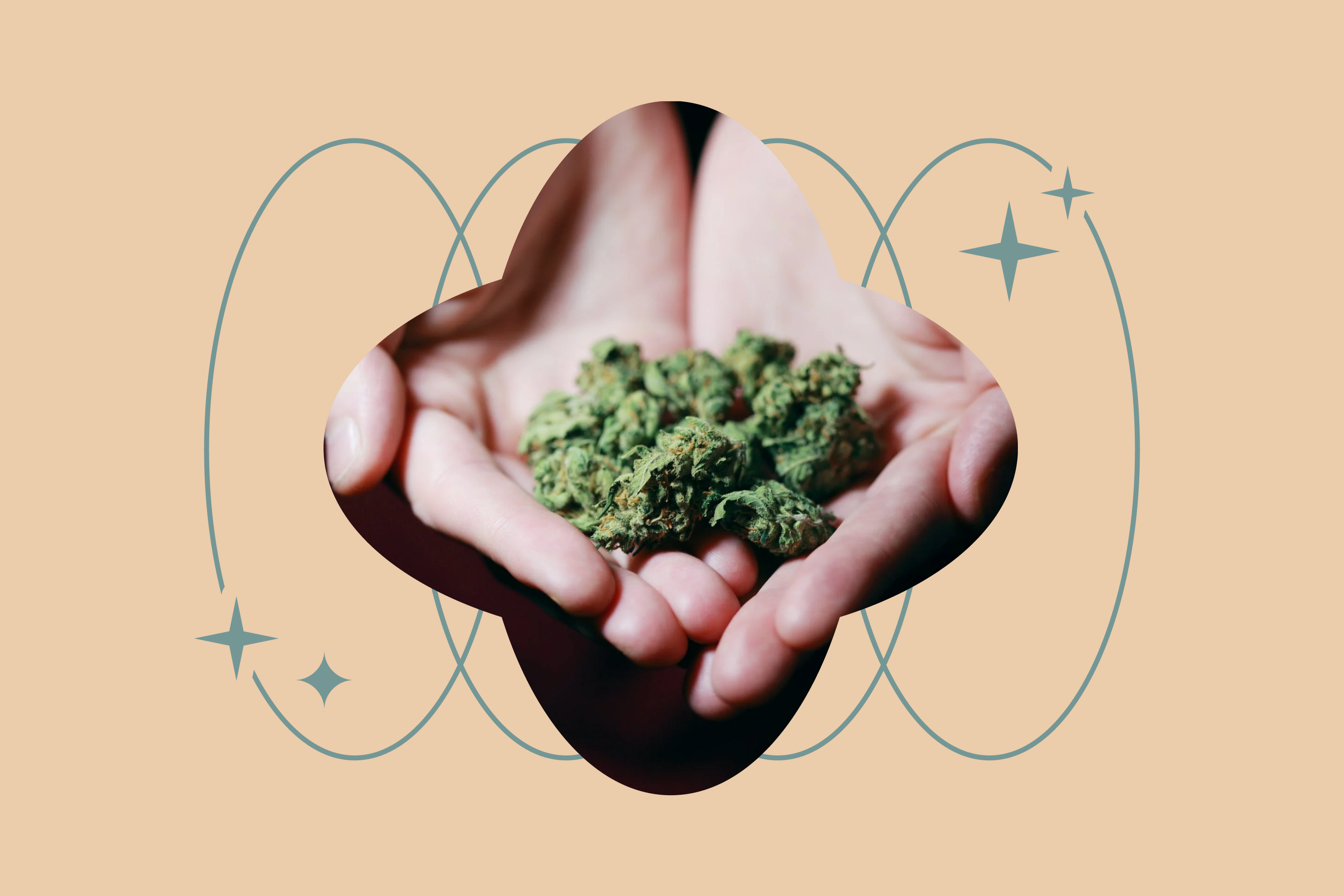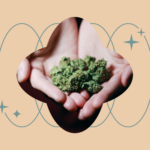Bloating During Ovulation: What It Means and 7 Ways to Manage It
Is bloating a symptom of ovulation? Yes, many women experience bloating during ovulation — along with other symptoms such as breast tenderness and one-sided pelvic pain called mittelschmerz. There are several things you can do to ease some of these uncomfortable symptoms.
Does ovulation cause bloating?
How to manage and reduce bloating during ovulation
When to get help for ovulation bloating

Does ovulation cause bloating?
Ovulation is a time when your body is going through a lot of hormonal changes. One of those changes is an increase in estrogen levels. Usually, between days 11 and 14 of your cycle, you will experience a spike in estrogen, which can lead to mood swings, wreak havoc on your digestive tract, and causes headaches and other discomforts for some women.
The changes in your digestive tract make it common to experience increased water retention for several days. It can also cause slowed digestion and increased gas. All of this leads to the uncomfortable bloated feeling you experience at ovulation.
Ovulation can also cause you to gain weight. Water retention might mean that you see a higher number on the scale around ovulation, but never fear: your weight will return to normal shortly after you ovulate as your body gets rid of this excess water.
How to Manage and Reduce Bloating During Ovulation
Bloating may be common, but that doesn’t mean you have to suffer through it. If bloating becomes uncomfortable and you want a little relief, there are a few things you can do to ease it:
1. Diet
You may want to make a few small shifts in your dietary habits around ovulation. Limiting your intake of salt can help ease water retention. You should also drink plenty of water to help flush out excess sodium from your body.
Occasionally, bloating during ovulation might be due to other causes, such as food intolerances. Many women experience discomfort eating a group of foods called FODMAPs, which include wheat, lactose, fructose, and artificial sweeteners. Limiting your intake of these foods can help ease bloating around ovulation if you are sensitive to them.
2. Potassium
Other causes of water retention include potassium deficiency. As many as 98% of Americans do not get the amount of potassium they need each day. This can lead your body to hang onto excess salt and water, causing bloating. Eating high-potassium foods such as bananas and potatoes may help ease the symptoms.
3. Magnesium
Studies also show that consuming high amounts of magnesium can ease water retention and bloating. To get the magnesium you need, you should make sure to incorporate plenty of fish, almonds, and avocados into your diet around ovulation.
You can also take a magnesium supplement if needed. Some studies show that high doses of magnesium may help reduce water retention and bloating. However, you should be careful not to overdo it: taking too much magnesium can cause diarrhea and digestive upset.
4. Natural Diuretics
You might also consider choosing more foods that are natural diuretics. Diuretics decrease the amount of water in your body, which means they are great for relieving water retention around ovulation. Ginger, cucumbers, and pineapple are examples of natural diuretics — try incorporating them into a yummy smoothie next time you ovulate!
5. Exercise
Slowed digestion is one major cause of bloating at ovulation. Thankfully, engaging in some gentle exercise can help ease the symptoms (check out our favorite pre-pregnancy workouts here). Working out might be the last thing you want to do when you are feeling bloated and uncomfortable, but studies show that exercise may speed the transit of food through your digestive system, alleviating those painful and embarrassing symptoms.

A little extra support from an expert can go a long way
Book an online consultation with one of our Hormone Health Coaches.
Schedule Now6. Stress Management
Another common culprit when it comes to bloating is stress. If you have a stressful job or are going through a difficult life experience, it may compound the bloating you experience around ovulation. According to some exercise professionals, high stress can reduce your stomach acid levels, which makes digestion more challenging. Thankfully, exercise is a powerful stress reliever. Try scheduling a yoga class or going for a short hike next time you are ovulating.
7. Probiotics
Probiotic supplements can ease bloating by aiding the function of healthy bacteria in your gut — but not all probiotics work equally well to alleviate the symptoms of bloating. Studies show that Lactobacillus acidophilus and Bifidobacterium lactis are the two probiotic strains that work best for bloating. Make sure to look for a probiotic supplement that contains at least one billion CFUs of these live strains to get the best results.
8. Peppermint Oil
Some women get relief from taking peppermint oil capsules, which have a soothing effect on the digestive symptom. They can ease gas, bloating, diarrhea, and constipation — hence why they are commonly used to treat irritable bowel syndrome (IBS). You should look for an enteric-coated peppermint oil capsule — like Heather’s Tummy Care — to reduce the risk of acid reflux when taking this product.
8. Digestive Enzymes
Taking certain dietary enzymes at mealtimes may help ease the symptoms of bloating. If dairy contributes to your bloating, you may want to take the lactase enzyme (a.k.a. Lactaid) to help you better digest the sugars in dairy. Lactase is taken with your first bite of dairy-containing foods. You might also try the enzyme alpha-galactosidase, otherwise known as Beano. Take this enzyme at your first bite or within 30 minutes after eating to ease gas and bloating while digesting high-fiber foods.
9. Cycle Tracking
If you tend to get bloating and pain during ovulation, you could use an ovulation kit such as Mira to know when you are hitting that time in your cycle. Knowing it is coming means you can proactively change your diet and prepare for it.
Mira measures the hormone concentrations in your urine with 99% accuracy to pinpoint when you are ovulating. It then syncs with the Mira app to track your cycle and provide personalized predictions.

If you aren’t using a fertility tracker like Mira, knowing the signs of ovulation can be helpful for preparing. Watch for a change in your cervical mucus to an egg-white consistency, a decrease in basal body temperature, and mid-cycle cramping.
When to Seek Help with Ovulation Bloating
While bloating can be a normal luteal phase symptom during the menstrual cycle, if you experience bloating that lasts more than a few days you should probably see your doctor to verify that there is not something more serious behind your bloat. Sometimes, bloating during ovulation can be caused by medical conditions such as endometriosis, polycystic ovarian syndrome (PCOS), or an ovarian cyst. These should be ruled out by a doctor.
Many women experience bloating during their menstrual cycle. It is usually not a cause for concern. If it becomes uncomfortable, start by trying a few dietary changes, exercising, and taking gas-reducing supplements. Should bloating last more than a few days or become very painful, however, it is best to see your doctor. Just remember you are not alone in facing this common symptom of ovulation.
Mira’s Editorial Process
All content produced by Mira meets stringent editorial standards, ensuring excellence and accuracy in language and medical precision. Every piece undergoes thorough fact-checking and review by qualified professionals. Check out our full editorial process to learn more.










